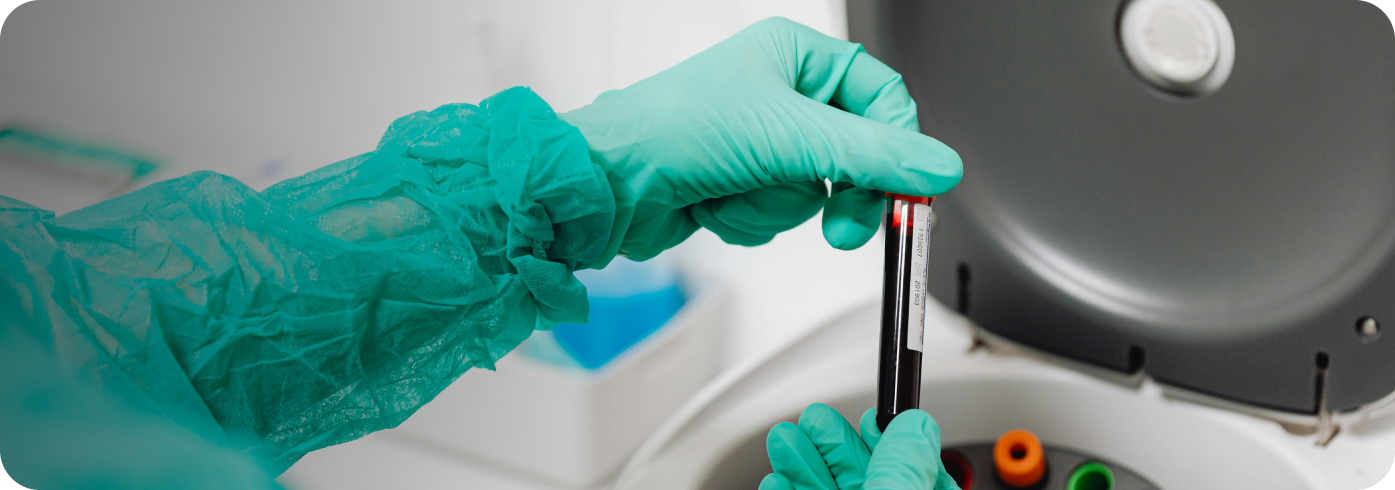
Preimplantation genetic testing (PGT) is a specialised procedure used during IVF to examine embryos for genetic or chromosomal abnormalities. By identifying the healthiest embryos, PGT can improve your chances of a successful implantation, reduce the risk of miscarriage, and increase the likelihood of a healthy baby.
As part of your fertility assessment, we’ll discuss carrier screening tests and the potential benefits of PGT for certain genetic conditions or chromosomal abnormalities.
PGT may be recommended if you fall into one of the following groups:

If you or your partner are known carriers or have a family history of genetic conditions like cystic fibrosis or sickle cell disease.
Women over 35 have a higher likelihood of chromosomal abnormalities in their embryos.
PGT can help identify the healthiest embryos for transfer if you’ve experienced multiple IVF failures or unexplained miscarriages.
If you or your partner have been diagnosed with chromosomal abnormalities, PGT can help.

PGT-A checks embryos for abnormal numbers of chromosomes (aneuploidy), helping us select the healthiest embryos for transfer.
Also known as preimplantation genetic diagnosis (PGT-M), this test screens for specific genetic diseases or conditions, such as cystic fibrosis.
Preimplantation genetic testing for structural rearrangements (known as PGT-SR) identifies changes in the structure of chromosomes that can cause infertility or increase the risk of miscarriage.

The benefits of PGT vary depending on your unique situation, but it can:

While PGT offers many advantages, it’s important to understand its limitations and risks:

As part of IVF, fertility medications are used to stimulate the ovaries to develop multiple eggs.
Eggs are collected from the ovaries and combined with sperm to create embryos in the lab.
Embryo biopsy occurs on day 5 to 6 of development, by carefully removing a small sample of cells from each embryo for testing.
The biopsied cells are sent to a specialised lab, where they’re tested for chromosomal abnormalities or specific genetic conditions, depending on your needs.
Based on the results, the healthiest embryos are selected for transfer.

PGT is an additional cost on top of an IVF cycle. While Medicare doesn’t cover the full cost of PGT, certain parts of the IVF process may be eligible for rebates.
For the latest information and pricing for carrier screening options visit: https://www.genea.com.au/pages/genetic-carrier-screening-MCQCJMWFPN2VDMPHPS73VJCPXW6A

Choosing the right fertility pathway is a deeply personal decision, and I’m here to guide you through it with care and expertise.
I take the time to fully understand your reproductive health and individual circumstances, offering compassionate and comprehensive support to find the best solution for you. Together, we can work toward achieving the family you’ve always dreamed of.
PGT-A (Aneuploidy)
Chromosomes are structures present in all cells that carry our genetic information.
The normal number of chromosomes present in cells is 46 - 23 pairs (one from the egg and one from the sperm).
Abnormalities in chromosome number (Aneuploidy) is the major reason for embryos not implanting or resulting in pregnancy loss.
The risk of aneuploidy is based on female age:
< 35-years = approximately 30%;
40-years = 50 - 60%;
43-years = 80 - 90%.
PGT-A is a chromosome screening test whereby the laboratory determines if a given embryo has the correct number of chromosomes (Euploid) or not (Aneuploid).
PGT-M (Monogenetic disorders) and PGT-SR (Structural Rearrangement)
Monogenetic disorders are a group inherited disorders caused by a single gene e.g Cystic Fibrosis, Spinal Muscle Atrophy, etc.
Structural Rearrangement, most commonly translocations, refers to a situation where there is a rearrangement in chromosomes in either the egg or sperm. This results in either a gain and/or loss of chromosome material in the embryo.
PGT-A and PGT-M/SR all require an IVF cycle.
Embryo culture progresses normally until day 4 (or 5). Laser ‘assisted hatching’ is used to breach the zona pellucida (supporting cell around the embryo) in order to maximise chances of ‘hatching’.
The portion of the embryo that hatches is then biopsied on days 5 and/or 6.
Next Generation Sequencing (NGS) is a technique used to karyotype the embryo. Polymerase Chain Reaction (PCR) is a technique used to detect an error in the specific section of the genome that we are interested in. Karyomapping is a newer technique that may be chosen to detect an error in the specific section of the genome we are interested in.
Due to the time required (approximately 2 - 3 weeks), a ‘freeze-all’ cycle is necessary. Embryos deemed ‘normal’ are then transferred in a later cycle.
Abnormal embryos will not be transferred.
The accuracy of NGS is quoted at 95%; the accuracy of PCR/Karyomapping is patient specific but is often around 98 – 99%. Antenatal screening/diagnosis is advised.
For further information on PGT:
https://www.fertilitysociety.com.au/preimplantation-genetic-testing-australia-new-zealand/;
https://www.fertilitysociety.com.au/preimplantation-genetic-testing-australia-new-zealand/.
It is possible that no embryos are suitable for biopsy; the NGS and/or PCR/Karyomapping test yields a non-conclusive result; the NGS and/or PCR/Karyomapping test yields an incorrect result; all embryos are deemed ‘abnormal’.
Dr Anthony Marren partners with Genea Fertility. Patient Relationship Coordinators (PRCs) will provide a quote based on the treatment plan plus Medicare/ insurance status.
For further information on costs of fertility treatment in Sydney: https://www.genea.com.au/treatment-costs.
PGT can only prevent the specific genetic disorders that were being tested.
Understanding the emotional journey couples endure when they have difficulty conceiving or recurrent pregnancy loss is essential to my approach.
Creative Advertising by Kiin Agency.